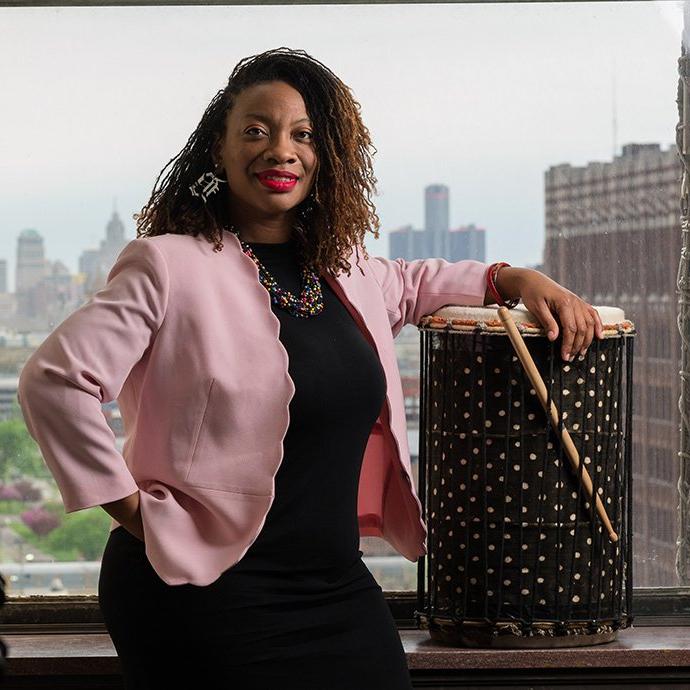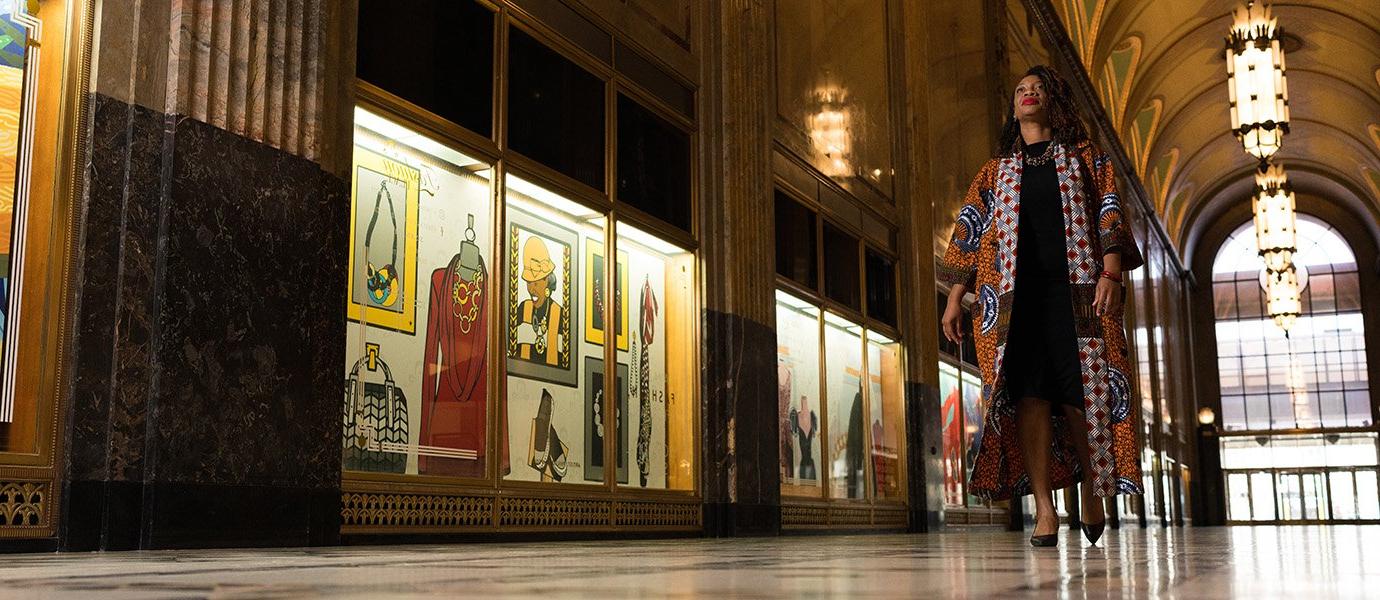- 脸谱网
- 推特
- YouTube
- TikTok
决定性时刻
Rhythms discovered in college set the tone of alum’s life

Robert Hall摄影
在2024欧洲杯下注读本科的时候, Lohren Carter-Nzoma, 中科院的02, 在校园里有过非常愉快的经历吗, immersing herself in studies and extracurricular activities. “My time at OU has completely shaped my life,” she says.
Carter-Nzoma came to OU in the wake of a family legacy. Her grandmother’s first cousin was Manuel Pierson, Ph.D., known for his pioneering diversity initiatives during his 28-year career at OU.
“He was a really big influence in our lives,卡特-恩佐马说. “It was all about education and being that next leg of legacy, setting a tone for our family and other people in our community.”
Carter-Nzoma majored in communications and made a pivotal discovery in a course in interpersonal communication. Her textbook “How Can I Help” by Ram Dass still sits on a shelf in Carter-Nzoma’s home, in part because it contains a concept that she tries to apply to all areas of her life.
“The book talks about servant leadership and how it’s everybody’s role. The price you pay for rent on Earth is service,” she says. “I really try to live that way in everything I do.”
从公开大学毕业后, Carter-Nzoma worked in communications and public relations but always felt a pull toward education. She went on to receive a master’s of elementary education from the 大学 of Phoenix and post-graduate certificate in educational leadership from Grand Valley State 大学. 目前, she is assistant superintendent of exceptional student education for Detroit Public Schools Community District (DPSCD) where she oversees a wide range of specialized and individualized programs for students of all ability levels.
 |
Carter-Nzoma is thrilled to be working for DPSCD at a time of great reformation. “We’re evolving, shifting and growing into updated best practices. 我们在做对孩子最好的事.”
Because she lives in the community in which she works, Carter-Nzoma feels an even stronger desire to help.
“You approach your work differently when your children go to school here and this is your community and you know they are counting on you for support,卡特-恩佐马说. “I’m really happy and grateful for the opportunity to serve in that capacity.”
Carter-Nzoma’s life outside of education is also the continuation of a passion sparked at OU. In 1997, she and a handful of students revitalized the African Dance and Drum group, Akanke, an interest inspired by Ma Safia and Kahemba Kitwana (Anita Martin) who were, 当时, 非洲舞蹈教练.
“They gave me the start and interest to look into studying and revitalizing African Dance on campus, 让我接触传统舞蹈和鼓乐,卡特-恩佐马回忆道. 我们也有一位指导老师. 霍恩说,他负责监督这个小组.”
“Akanke was one way for them to learn about their history and how it’s still influencing dance today,艾薇·霍恩解释道, now retired from her position as assistant director of the OU 学术 Skills Center. “It was a way to pass on the culture and keep it alive.”
Horn is thrilled that Akanke set Carter-Nzoma on a path that she continues to the present day. Designating herself a “Keeper of the Culture,” Carter-Nzoma teaches and performs Traditional West African Dance and Drum, 还有她的四个孩子. She learns from master teachers and works with reverence to recreate the art with authenticity. Carter-Nzoma wants people to know that the rhythms and movements are not random or wild but that they have their origin in life events. 有些舞蹈表现的是日常活动, 比如洗衣服, 而另一些则包含了战士的动作. There are wedding dances and dances that celebrate overcoming hardship. Each dance comes from specific people and has a particular type of costume and drumming associated with it.
 |
| 图片由Carter-Nzoma提供 |
“These dances and the rhythms are thousands of years old, and they tell stories,” says Carter-Nzoma. “这是人民的历史.”
By keeping the art of Traditional West African Dance and Drum alive, Carter-Nzoma hopes not only to preserve the culture but also to give to others some of the things that she has gained from it, including a connection to “something that feels right for who she is” and a cultural history that for many African Americans is largely unknown.
“它给了我们一种共同的归属感. 这是我们的历史吗?? 我们不知道, so we treat it with the utmost respect and gratitude to the individuals who share a bit of their culture with us.”
比如她在教育领域的工作, Carter-Nzoma’s work of culture-keeping is a gift she shares with the public as well as those closest to her. 每次见到她一岁的孙子, she greets him by singing a traditional African rhythm, which he plays back to her on the drum that was his first gift.
“He knows that when he sees me, that’s how we’re going to greet one another. 所以,我们要把它传递下去. 文化的守护者. 这就是我们正在做的.”
 |


 2022年9月1日
2022年9月1日 凯西·安吉尔
凯西·安吉尔

